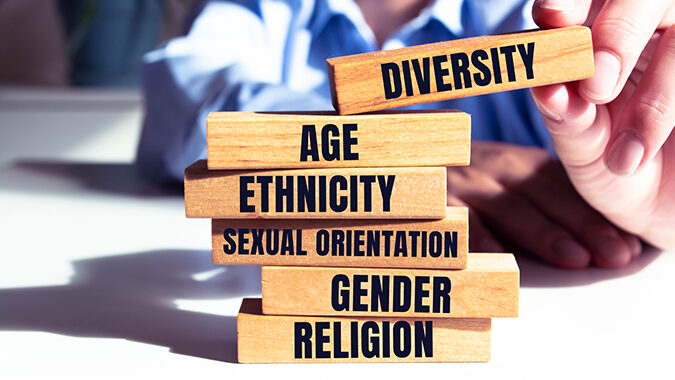Breaking down generation stereotypes and striving to be an “authentic communicator” in the workplace with people of all ages are key to keeping employees engaged, productive and moving the organization’s mission forward, a panel of diversity and inclusion experts said at NJBIA’s recent DEI Summit.
Diverse workplaces are more creative, productive, and generate higher profits for their organizations, but sometimes having five different generations working side by side in the modern workplace can lead to misperceptions and miscommunication – or worse no communication at all. DEI experts shared tools and best practices to create a more collaborative intergenerational workplace environment during the DEI Summit’s panel discussion on How to Manage Intergenerational Communication.
Although character traits and work habits are shaped by personality, not by age, it is also true that each generation has been influenced by social and historical events in their lives. Effective intergenerational communication requires that people avoid falling back on the mental shortcuts that give rise to stereotypes and biases based on someone’s age.
“Some of the stereotypes I hear are that millennials are slackers, baby boomers are technically challenged, Gen Xers demand work life balance and Gen Z only communicates via texts,” said Beanne Guzman, director of development at ILearn Schools.
While most people work hard to debunk racial bias in their workplaces, generational stereotypes persist and are easily tolerated by too many organizations, Guzman said.
“An older employee forgets to unmute themselves on Zoom and then everyone gets a little dig in about their lack of technical know-how,” Guzman said. “But the truth is that most baby boomers and Gen Xers have had to adapt to learn more technology in the past 30 years than younger employees have ever experienced.”
Reggie Lewis, executive director of the Greenleaf Center for Servant Leadership and adjunct professor at Seton Hall University, said younger workers who have grown up with technology are often unfairly stereotyped as individualists who stay in insular bubbles supported by social media platforms.
“Contrary to popular belief, while technology certainly enables the focus on the individual … I think young people, broadly speaking have very strong beliefs for shaping a better society,” Lewis said, adding that various research studies have underscored that fact.
Different generations may have different preferred communication methods, but whether managers are communicating by phone, email, text or messaging apps, the key is to be authentic.
“Remember to communicate with authenticity,” Guzman said. “You have to communicate with authenticity, empathy, and appreciation across all generations. Don’t try to sound like you’re older to reach older audiences or younger so that younger generations can relate to you. Just be your authentic self and be who you are as a leader and as a colleague.”
To hear the entire panel discussion, go here.




